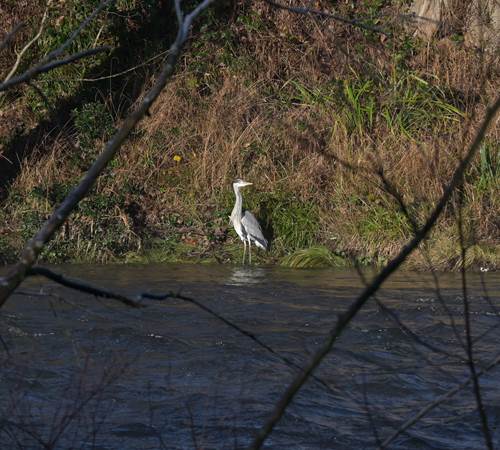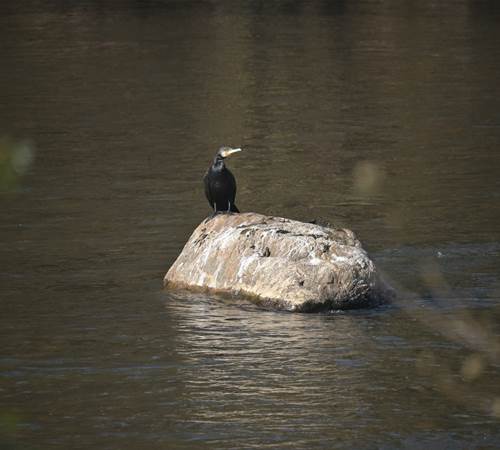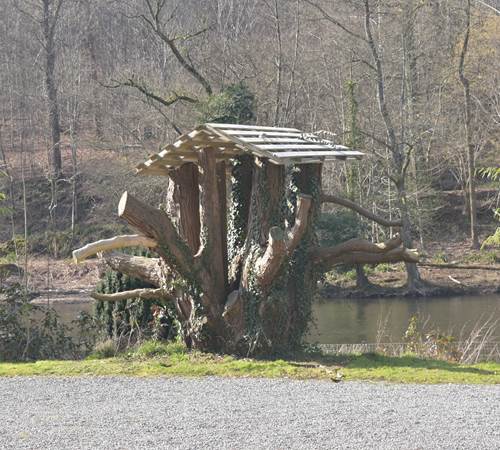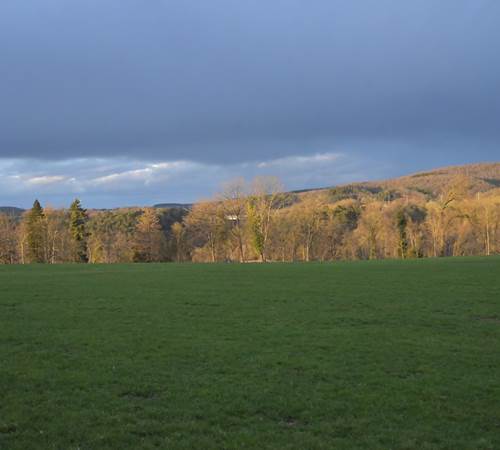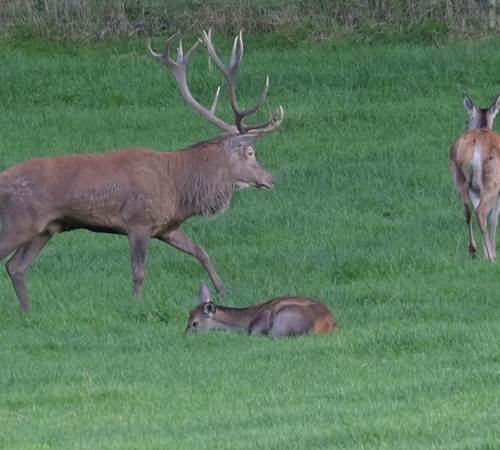Nature retreat in Belgium
Wildlife and Nature around Our Ecolodge in the Ardennes
""Take only pictures, leave only footprints.""
The Ardennes Forest: Home to Rich Biodiversity
Native Trees and Sustainable Forests
The Ardennes forest around Ecolodge du Moulin is composed of native trees such as beech, oak, maple, and ash. These trees are not only important carbon sinks but also provide essential shelter and food for Ardennes wildlife.
We promote sustainable forestry with mixed forests and natural regeneration to protect biodiversity and prevent forest diseases caused by monoculture of conifers.
Wildlife in the Ardennes: Untamed and Mysterious
Forest Animals You May Encounter
The region is home to:
• Wild boar
• Roe deer
• Red deer
• Foxes
• Badgers
• Hares
• Occasional raccoons
The Return of Wolves in the Ardennes
After more than a century of absence, wolves have been spotted again. These opportunistic predators usually avoid humans, but as with any wild animal, it's best to hike in groups and keep young children close. If a wolf approaches, make yourself big, make noise, and never run.
Mountain and Landscape: The Dramatic Relief of the Amblève Valley
A Deep Valley with Steep Slopes
At 110 meters altitude, the ecolodge is surrounded by peaks rising above 300 meters. The steep slopes—some reaching nearly 100% incline—were carved over millennia by the Amblève River.
Local Rocks and Geology
• Limestone: Used to build charming local villages.
• Sandstone: Very hard and varies in color from ochre to reddish tones.
• Slate: Used for traditional Ardennes rooftops.
The Amblève River: A Peaceful Yet Powerful Presence
The Source and Journey of the River
The Amblève is a tributary of the Ourthe, which flows into the Meuse. It originates in Amel—named after the Alder tree (""Amel"" in Germanic roots means ""river of alders"").
Alders and Their Uses
Alders grow along the riverbanks. In the past, they were used for fuel and charcoal. If cut every 5 years, they regrow naturally, making them an ideal renewable energy source for the Ardennes valleys.
The Scenic Path and Local Legends
A walking path along the left bank of the Amblève connects Nonceveux to Quareux, lined with large boulders. This area inspired Marcelin La Garde's tale ""The Devil's Mill,"" part of the Legends of the Amblève Valley.
River Wildlife: Birds, Beavers, and Fish
Birds Near the Water
You may spot:
• Cormorants
• Grey herons
• Egyptian geese
• Canada geese
• Mallards
• The kingfisher
The Beaver's Return
Beavers sometimes nest along the riverbanks. These herbivores cut down trees to feed and build their lodges, leaving visible signs of their presence.
Fish and Responsible Fishing
The Amblève contains chub, trout, and reintroduced salmon. Fishing is limited to fly fishing only. The stretch along Ecolodge du Moulin is a ""No Kill"" zone—all catches must be released. Fishing permits are available from the local tourist office.
Protecting the Ardennes Environment During Your Stay:
• Walk only on marked trails
• Keep dogs on a leash
• Avoid picking protected plants
• Do not move river stones
• Leave no trace—just footprints

